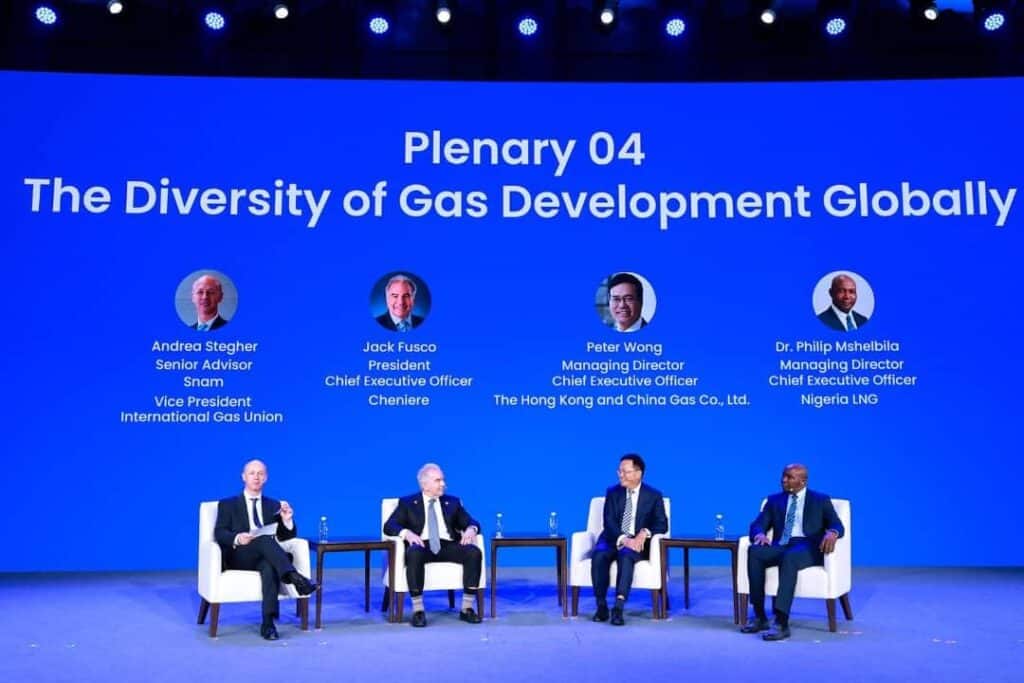NLNG MD: Gas Needs To Replace Dirtier Fuels To Drive Power Change In Africa
The Managing Supervisor and President of Nigerian Liquefied Natural Gas (NLNG), Philia Mshelbila, has emphasized the importance of replacing dirtier fuels, such as biomass, with natural gas to accelerate the energy transition in Africa. Mshelbila made this statement during a panel discussion titled ‘Diversity of Gas Development Worldwide’ at the 29th World Gas Conference.
Efforts Towards Cleaner Energy
Mshelbila highlighted the critical need for intentional efforts to shift from biomass to natural gas for power generation in Africa. He stressed that accessibility and affordability are key factors for ensuring widespread energy access, particularly through the utilization of natural gas. Resolving infrastructure challenges was also emphasized to ensure affordable energy reaches those in need.
He pointed out that currently, a significant portion of Africa’s population relies on biomass for cooking and liquid gas for transportation. With Africa’s population projected to grow to 2.5 billion in the next 25 years, transitioning to natural gas from dirtier fuels like biomass becomes imperative. Mshelbila emphasized that addressing issues of access and cost is vital for this transition to cleaner energy sources.
Nigeria’s Decade of Gas Campaign
Mshelbila underscored Nigeria’s ‘Decade of Gas’ initiative as a strategic framework to replace high-emission fuels with cleaner and more sustainable gas alternatives. This initiative aims to enhance domestic gas utilization and address infrastructure constraints to promote both local consumption and exports.
Efforts such as the promotion of Compressed Natural Gas (CNG) for transportation and Liquefied Petroleum Gas (LPG) for cooking are part of the campaign. The goal is to significantly increase natural gas usage by 2030 to displace dirtier fuels, improve environmental sustainability, and foster economic growth.
Driving Infrastructure Development
Mshelbila stressed the importance of local solutions to address Africa’s energy challenges. Despite abundant gas reserves in countries like Nigeria, Algeria, and Egypt, low utilization persists due to infrastructure gaps and regulatory uncertainties. He called for deliberate policies to stimulate infrastructure development, enhance local content, and promote technological advancements.
He highlighted the role of clear government policies in reducing investment risks and attracting capital. By creating a conducive investment environment, countries can drive infrastructure development and ensure energy access while safeguarding vulnerable populations.
Promoting Sustainable Energy Policies
Mshelbila noted the global diversity in energy policies, with regions like the EU focusing on regulation and the US on incentives. He emphasized the pivotal role of policy frameworks in facilitating a sustainable energy transition tailored to each region’s needs.
During the panel discussion, Mshelbila shared insights with industry experts including Jack Fusco from Cheniere (United States), Peter Wong from Hong Kong and China Gas Company Limited, and Andrea Stegher from SNAM and the International Gas Union.


